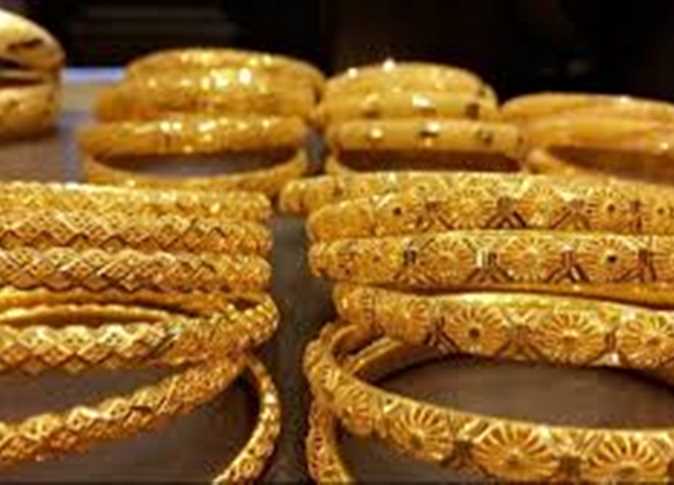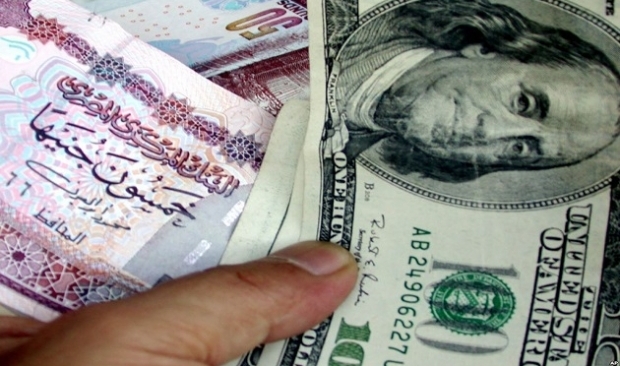With a loan deal between Egypt and the International Monetary Fund still uncertain and foreign investors still wary of returning, Egypt’s Central Bank will likely have no choice but to devalue its currency in the coming months. But currency devaluation, though probably inevitable, will have more lasting inflationary effects than many might realize. And this move, experts say, might have an outsized effect on Egypt’s poorest.
“In theory, after a devaluation, exports should increase and imports should decrease,” said Magda Kandil, executive director at the Egyptian Center for Economic Studies. “But the problem in Egypt is that neither scenario is true.”
A decrease in imports and increase in exports would solve Egypt’s trade deficit problem and help with rapidly depleting foreign reserves. These are crucial benefits. China has long kept its own currency low vis-a-vis to the dollar to support its strong export market.
But the nature of Egypt’s economy means that economy textbook scenarios won’t happen for several reasons, Kandil said.
First, the majority of the products that Egypt imports are necessary goods that people cannot go without, like wheat and cooking oil. And there are no easy domestic alternatives for these goods. This means the public, no matter their income, will likely have no choice but to swallow the price increases. That is, unless the government decides to subsidize at a greater rate, which is unlikely considering its current budget crisis.
Secondly, Kandil said, much of the merchandise Egypt exports is not 100 percent Egyptian-made. Electronics and plastic products often require “interim goods,” integral parts of the production process that are made in other countries. Thus, an increase in the price of these imported goods will be passed along to the final consumers abroad, mitigating any of the price decreases resulting from the currency devaluation.
And lastly, most people will brace themselves for rising prices if the currency falls, stockpiling petrol, cooking gas and other vital goods. The hoarding, Kandil said, means that the reality of higher prices becomes a self-fulfilling prophecy.
Both scenarios will mean higher prices across the economy, from a small streetside grocer to Egypt’s largest corporations.
This economic abnormality has been documented before in Egypt.
In a 2008 article published in International Research Journal of Finance and Economics, American University in Cairo Economics Professor Hala El-Ramly examined the financial repercussions of Egypt’s devaluations. She found that since 2003, when Egypt first “floated” its currency, allowing its value to rise and fall with the market in relation to the dollar, the country’s devaluations has not resulted in any immediate increase in its exports or economic growth.
She cautioned against back-to-back depreciations because of their “sustained negative impact,” and found it took as long as four years after an initial currency markdown for Egypt’s export sector to adjust to see growth or profit increase.
Four years is too long for most of Egypt’s factory workers and unemployed to wait.
That’s why it seems that some officials are still in denial that depreciation is inevitable. In late January, a bank official told Al-Masry Al-Youm that the Central Bank would not devalue the pound against the dollar, knowing the negative consequences it would have on an already tenuous economic situation.
When Egypt first adopted a flexible exchange rate in 2000, the pound fell over 40 percent in three years, from LE3.69 to the US dollar to LE6.13, in part due to unrest in the region at the time and terrorist attacks in Luxor.
Since 2003, the bank’s experts have avoided letting the Egyptian pound fall against the dollar at the cost of burning through the country’s foreign reserves. Selling off foreign reserves on the international currency market helps maintain the appearance of a strong pound in relation to the dollar and the Euro.
And since then, the currency has actually done little “rising and falling,” especially in the last year. Rather, the bank carefully made sure that the Egyptian pound did not lose more than one percentage point of value against the US dollar since March of last year.
“We adopted what we call ‘dirty management’ floating,” said Cairo University economics professor and Egyptian Central Bank expert Ahmed Ghoneim. “You don’t announce the boundaries of the currency, but there are boundaries nonetheless.”
But without the country’s previous large income of foreign currencies through tourism, the well is growing dry quickly. The Central Bank has said foreign reserves fell by US$1.77 billion in January alone. Reserves currently stand at about $16.35 billion.
One of the hopes is that if an IMF loan, previously rejected by the interim government, arrives, Egypt will be able to continue to keep the pound from falling. But Kandil said US$3.2 billion is not likely to hold off depreciation for long.
She, like most experts, sees depreciation on the horizon.
“Unfortunately, now depreciation has been forced upon us,” said Kandil, “because simply, the Central Bank is running out of ammunition.”




